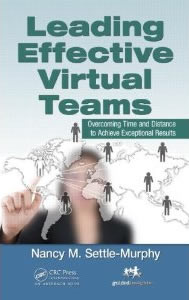As I write this month’s Communiqué, I’m completely focused on my topic. I can get this written in about an hour, if no one interrupts me. An email flashes on my screen. What if it’s really important? Twenty-five minutes later (okay, so I read a few emails and replied to three of them); I’m ready to start afresh.
It takes me 15 minutes to recall my main points, and now I’m ready to start. Suddenly, I realize that I forgot to return a client’s call. A half-hour after leaving her a voicemail and detouring to read a few more emails, I’m all set once again. But first, I have to reply to my colleague’s IM asking me for information that seems urgent. Then I realize my next meeting starts in 20 minutes. I can’t possibly make a dent in writing this now. Besides, I can really use this time to catch up on a few more emails. Maybe I’ll find time for this tomorrow.
In more than two hours, I haven’t accomplished a thing. Sound familiar? Recent research indicates that today’s knowledge workers switch tasks about every three minutes and take 25 minutes to return to an interrupted task. By one estimate, interruptions cost a total of up to 2.1 hours of the average worker’s day, costing more than $650 billion per year in lost productivity in the U.S. alone. The good news: Most of our interruptions are self- inflicted, and we can take steps to do something about them.
This edition of Communiqué explores ways that each of us can gain back valuable working time each day by changing habits and behaviors. Warning: Some readers may find some of these recommendations too extreme, especially those who are hard-wired to multitask constantly. Make one or two changes at first, if you must. If you’re part of an ongoing team, choose one change you can all agree to. Once you’ve discovered how much more time you now have to get work done, take another step.
- Schedule meetings with yourself. Mark as busy the time you need to get work done, whether in your electronic or paper calendar or both. If you use a shared calendar, others will see that you’re busy and may not be quite so tempted to IM or text you with an urgent question. Just as important, you’ll take your commitment to get important work done more seriously, even if you’re a working group of one.
- Boycott non-essential meetings, given the choice. If you reluctantly agree to attend a meeting that doesn’t really require your presence, chances are you’ll be thinking about the work you are not doing, rather than focusing on the topic at hand. (And if you’re attending remotely, you’ll probably actually be doing your work, while making a lame attempt to participate on the call.) Either way, it all adds up to a waste of time for you, and for other participants who have to suffer through your half-hearted responses.
- Turn off your email. While it’s true you may get that critical email you’ve been waiting for all week, it really can wait until you get your work done. Stopping to read emails, even if you don’t respond right away, can siphon hours each day, with relatively little return for your efforts. Try allocating just a couple of times a day to read email–say at 11 AM and 4 PM–and limit the amount of time you spend reading and responding to emails. Not only will you get more productive time back into your day, but you’ll be able to more easily discard those emails that don’t really require your attention. If you can’t quite make the leap to turn off email, mute sounds that announce new messages so they’re easier to ignore until you’re ready to attend to them. Let other team members know of your plans so they can reach you other ways in case of an urgent request.
- Set limits on instant messaging. If you must log onto your IM when trying to get work done, let others know whether you’re available for reading or responding. For example, you might let people know that you’re available only for emergencies between 12-2 today and that people will need to reach you via phone, since email and IM will be shut down during that time. As a team, set realistic expectations about the level of responsiveness others can reasonably expect, and agree how you want to handle the need to eliminate interruptions during certain times.
- Ignore your BlackBerry. Or better yet, turn it off, or set to inaudible and place it out of view so you can focus completely on the task at hand, whether you’re alone or with others. Just as some people understand the importance of curtailing BlackBerry use when with others; extend this same courtesy to yourself so you can give yourself your undivided attention.
- Screen all calls. Try not answering your phone just because it rings. Sure, some calls can’t wait-the doctor, your kid’s school, an important client, your manager. But most calls can probably wait until you’re ready to be interrupted. Make sure your voicemail lets people know that you’ll return calls promptly and ask that they leave a phone number where they can be reached. Let your team members know when you will not be accessible via phone. In case of an emergency, give them an alternative number, if needed.
- Stay off the web. The average knowledge worker surfs over 40 websites a day. Of course, you may need some web content for your work, but be judicious about where you search and what it is you really need right now. You can always bookmark interesting spots you find along the way for perusal when your job is done.
- Break your project into small chunks. Let’s face it: Many of us have attention spans that allow us to concentrate for just a few minutes at a time. Carve your work into small manageable chunks so you can feel a sense of well-earned accomplishment every time you successfully complete a piece of your work. Have a plan in mind for finishing the whole project, and share this with your team and ask for their help in holding you accountable. Nothing concentrates the mind like deadlines that other people know about, too.
- Clean your desk, clear your mind. Eliminate any physical distractions from your desktop, both your electronic and physical environments. Close open documents, websites and any applications you don’t need for the work at hand. Put aside papers and personal items that may sidetrack you. Got an unfinished task that’s blocking your mind? Get rid of it quickly by finishing it, or by reaching a natural stopping point with a clear plan to continue later. Push away all of the extraneous clutter so you can focus with a clear conscience and a clean workspace.
Summary
The very tools that can make it easier to create, share and access vital information are the same ones that fracture our attention spans in ways that make it almost impossible to concentrate on our work. Each of us needs to find the right balance between using these tools intelligently in ways that contribute value to our work versus allowing these tools to hijack our working time, forcing us into longer work days to get the job done. Start by making a couple of changes. When your colleagues see that you’re able to get all of your work done in eight hours while they still labor after 10 or 11 hours, chances are they’ll follow suit.




